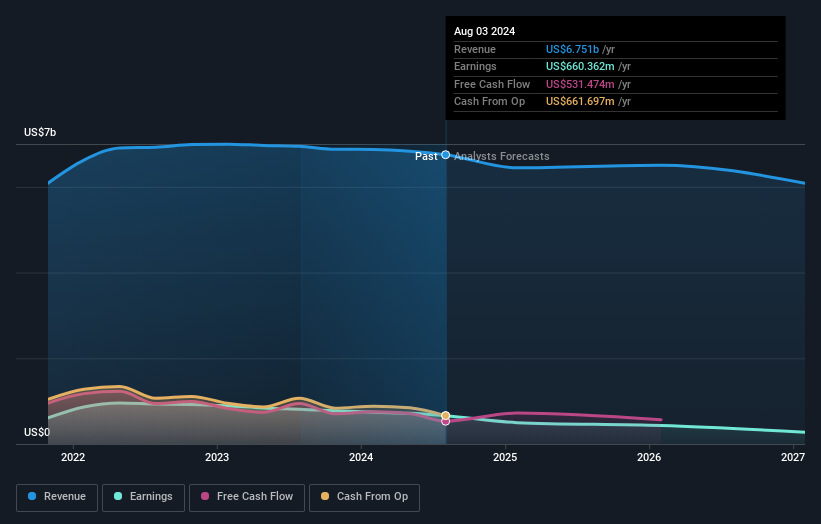When Should You Buy Dillard's, Inc. (NYSE:DDS)?
While Dillard's, Inc. (NYSE:DDS) might not have the largest market cap around , it saw a double-digit share price rise of over 10% in the past couple of months on the NYSE. While good news for shareholders, the company has traded much higher in the past year. As a mid-cap stock with high coverage by analysts, you could assume any recent changes in the company’s outlook is already priced into the stock. However, what if the stock is still a bargain? Let’s examine Dillard's’s valuation and outlook in more detail to determine if there’s still a bargain opportunity.
Check out our latest analysis for Dillard's
Is Dillard's Still Cheap?
Great news for investors – Dillard's is still trading at a fairly cheap price according to our price multiple model, where we compare the company's price-to-earnings ratio to the industry average. In this instance, we’ve used the price-to-earnings (PE) ratio given that there is not enough information to reliably forecast the stock’s cash flows. we find that Dillard's’s ratio of 8.96x is below its peer average of 20.61x, which indicates the stock is trading at a lower price compared to the Multiline Retail industry. Another thing to keep in mind is that Dillard's’s share price is quite stable relative to the rest of the market, as indicated by its low beta. This means that if you believe the current share price should move towards its industry peers, a low beta could suggest it is not likely to reach that level anytime soon, and once it’s there, it may be hard to fall back down into an attractive buying range again.
What does the future of Dillard's look like?

Future outlook is an important aspect when you’re looking at buying a stock, especially if you are an investor looking for growth in your portfolio. Although value investors would argue that it’s the intrinsic value relative to the price that matter the most, a more compelling investment thesis would be high growth potential at a cheap price. However, with an extremely negative double-digit change in profit expected over the next couple of years, near-term growth is certainly not a driver of a buy decision. It seems like high uncertainty is on the cards for Dillard's, at least in the near future.
What This Means For You
Are you a shareholder? Although DDS is currently trading below the industry PE ratio, the negative profit outlook does bring on some uncertainty, which equates to higher risk. Consider whether you want to increase your portfolio exposure to DDS, or whether diversifying into another stock may be a better move for your total risk and return.
Are you a potential investor? If you’ve been keeping tabs on DDS for some time, but hesitant on making the leap, we recommend you research further into the stock. Given its current price multiple, now is a great time to make a decision. But keep in mind the risks that come with negative growth prospects in the future.
Keep in mind, when it comes to analysing a stock it's worth noting the risks involved. In terms of investment risks, we've identified 1 warning sign with Dillard's, and understanding it should be part of your investment process.
If you are no longer interested in Dillard's, you can use our free platform to see our list of over 50 other stocks with a high growth potential.
New: Manage All Your Stock Portfolios in One Place
We've created the ultimate portfolio companion for stock investors, and it's free.
• Connect an unlimited number of Portfolios and see your total in one currency
• Be alerted to new Warning Signs or Risks via email or mobile
• Track the Fair Value of your stocks
Have feedback on this article? Concerned about the content? Get in touch with us directly. Alternatively, email editorial-team (at) simplywallst.com.
This article by Simply Wall St is general in nature. We provide commentary based on historical data and analyst forecasts only using an unbiased methodology and our articles are not intended to be financial advice. It does not constitute a recommendation to buy or sell any stock, and does not take account of your objectives, or your financial situation. We aim to bring you long-term focused analysis driven by fundamental data. Note that our analysis may not factor in the latest price-sensitive company announcements or qualitative material. Simply Wall St has no position in any stocks mentioned.
About NYSE:DDS
Dillard's
Operates retail department stores in the southeastern, southwestern, and midwestern areas of the United States.
Flawless balance sheet established dividend payer.
Similar Companies
Market Insights
Community Narratives




